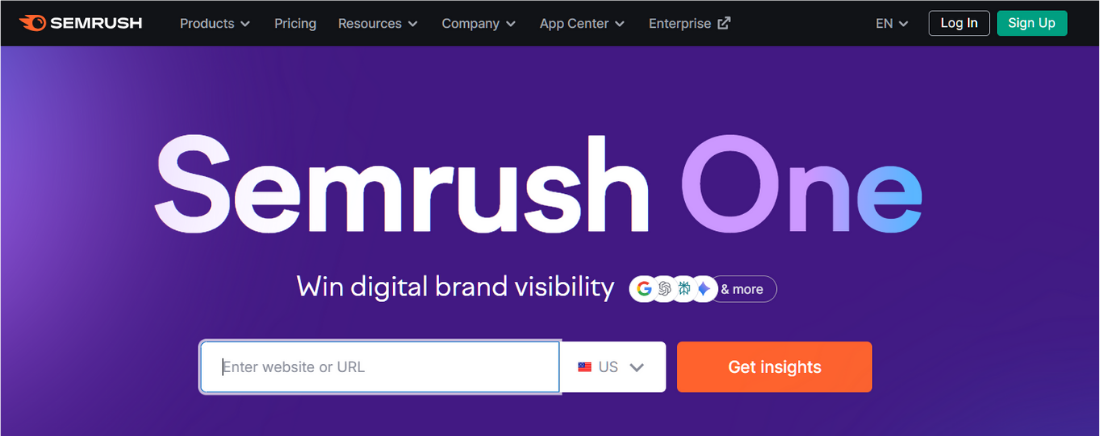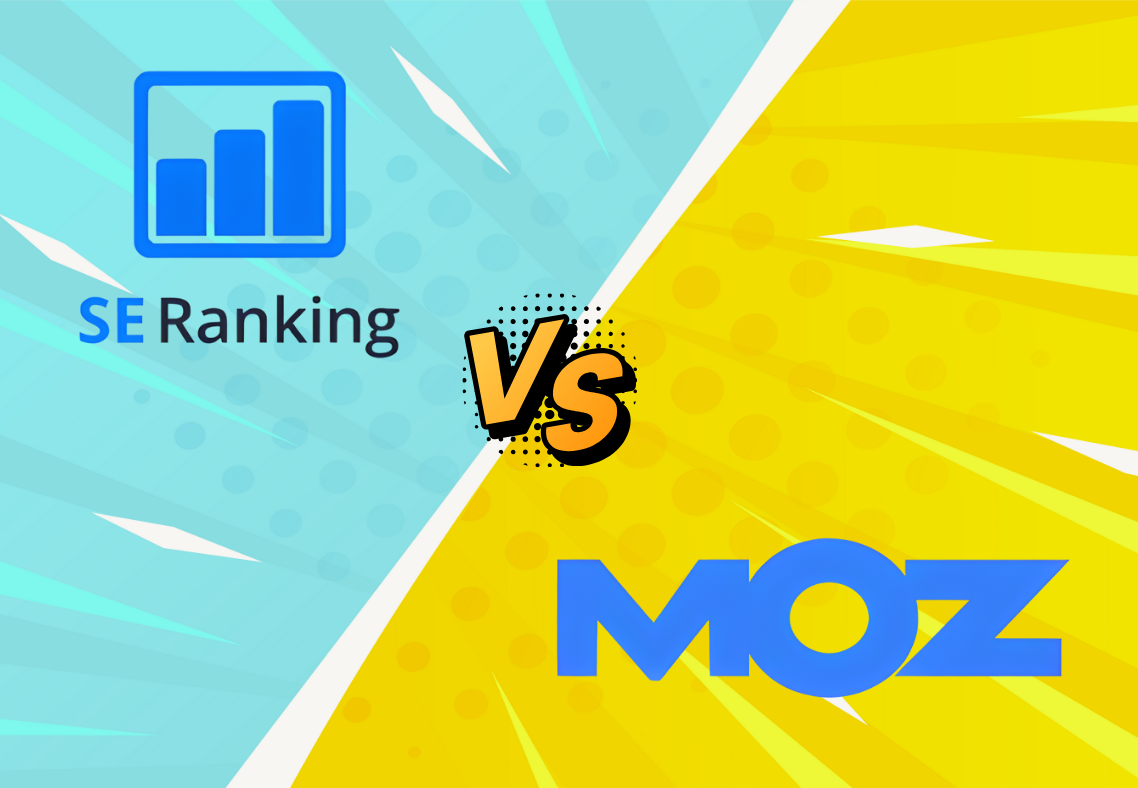If you’ve been optimizing websites for any length of time, you already know that great content isn’t enough.
To truly rank, your website’s technical SEO health must be rock-solid, with clean architecture, fast page speed, flawless indexation, and zero crawl errors.
That’s where the best technical SEO tools come in.
In 2025, these platforms will go far beyond basic audits.
They dig deep into Core Web Vitals, analyze server response times, validate structured data, and visualize site architecture to uncover issues invisible to manual inspection.
Whether you’re a freelancer, agency, or enterprise marketer, investing in the right technical SEO toolkit can transform how efficiently you diagnose, report, and optimize your website’s health.
What Are Technical SEO Tools and Why Are They Essential in 2025?
Technical SEO forms the foundation of online visibility. Without a robust site architecture and efficient crawling, even the highest-quality content remains hidden.
Technical SEO tools automate what would otherwise take hours of manual checks, scanning for crawl errors, indexability issues, slow-loading pages, and more. They make your site fully accessible to search engine crawlers and deliver the best user experience possible.
Here’s what these technical SEO audits using an advanced SEO checker typically analyze:
- Crawlability & Indexation: detecting broken links, redirect chains, robots.txt conflicts, and canonical errors.
- Site Performance: measuring Core Web Vitals metrics like LCP, CLS, and INP to assess page speed and user experience.
- Structured Data & Schema Markup: identifying validation errors and missing rich-result opportunities.
- Mobile Usability: ensuring a smooth experience across devices and testing for mobile-first rendering.
- Site Architecture & Internal Linking: mapping your entire crawl structure to detect orphan pages or inefficient hierarchies.
In short, technical SEO tools turn chaotic data into prioritized insights, making optimization a science rather than guesswork.
How to Choose the Right SEO Checker or Technical SEO Tool
Not all tools are built for the same purpose. Some excel at large-scale crawling, others specialize in Core Web Vitals or structured data. To pick the right one, assess your site’s size, team needs, and automation level.
Identify Your Audit Needs
Before purchasing, define:
- Website scale: How many URLs do you manage?
- Data depth: Do you need log file analysis or simple crawl reports?
- Integration requirements: Will you connect to Google Search Console or analytics dashboards?
- Team size: Will multiple users collaborate on reports?
Evaluate Reporting & Automation
Modern tools now automate crawl scheduling, generate real-time SEO reports, and sync issues with project management platforms. Look for features like:
- Automated crawl reports with issue prioritization
- Custom dashboards for stakeholders
- Core Web Vitals tracking via Lighthouse integration
Pricing & Scalability
Free tools such as Google Search Console or Bing Webmaster Tools are great for small sites. But larger organizations often need enterprise SEO tools like DeepCrawl or Semrush for advanced crawling, user seats, and API access. Always weigh crawl depth, data accuracy, and cost per project before scaling.
Top 10+ Best Technical SEO Tools (Free & Paid Options)
Every serious SEO stack needs at least one dedicated technical SEO audit tool. Below are the best tool options tested in 2025, trusted by the global SEO community and ranked by accuracy, performance, and feature value essential for improving SEO and content marketing efficiency.
1. Screaming Frog SEO Spider: Best Overall Crawler & Site Auditor
Few tools define technical SEO like Screaming Frog. Known for unmatched crawl depth, this SEO audit tool scans every link, image, and tag to uncover structural weaknesses.
Core Features:
- Comprehensive crawl analysis tool for unlimited URLs
- Broken link checker and redirect map
- Canonical tag checker and XML sitemap generator
- Page titles, meta data, and hreflang audits
- Exports for CSV, Excel, and Google Sheets
Best For: SEOs managing large sites or e-commerce platforms
Pricing: Free for up to 500 URLs; $330/year for Pro license
Verdict: The most data-rich desktop SEO crawler available, still unmatched for value.
2. Semrush Site Audit: Best All-in-One tool for Technical SEO Platform
The Semrush Site Audit module is the powerhouse of automation. It is an all-in-one SEO platform for all your SEO and content needs.
This is the best SEO tool for technical SEO checks, over 140 site issues, and seamless integration with its built-in keyword research tool, backlink audits, and competitor insights.
Highlights:
- Structured data tool for schema markup validation
- Core Web Vitals tracking
- Duplicate content & AMP issue detection
- Crawlability & HTTPS checks
- Automation via email & API
Best For: Agencies needing a unified SEO platform with automation
Pricing: From $129.95/month
Verdict: A feature-dense suite for teams that want an integrated SEO workflow.
3. Ahrefs Site Audit: Powerful SEO Audit Tool with Advanced Site Crawler
Ahrefs extends beyond backlinks with its full technical SEO audit suite, featuring an advanced site audit tool that delivers a complete SEO site audit.
It identifies crawl errors, duplicate content, redirect chains, and performance bottlenecks, giving you actionable seo insights to enhance technical health, optimize page speed, and strengthen your site’s overall visibility.
Core Functions:
- Health check audit tool with issue prioritization
- Crawl log visualization & indexability graphs
- Internal link audit for anchor distribution
- Page performance metrics (HTML size, redirects, broken scripts)
Best For: SEOs who already use Ahrefs for keyword or link data
Pricing: From $99/month
Verdict: Reliable, fast, and best integrated into holistic SEO campaigns.
4. Sitebulb: Visual SEO Audit Tool for Deep Technical Insights
Sitebulb blends power and presentation, offering a beautifully visual crawl visualization of your website’s seo.
It’s a tool for analyzing site architecture and one of those tools that could uncover deep technical SEO issues often missed by standard audits.
Key Features:
- Interactive site diagrams revealing crawl depth
- Technical health scoring system
- Audit export in PDF & CSV formats
- Advanced JavaScript SEO auditing
Best For: Consultants and agencies that value clarity and presentation
Pricing: From $15/month
Verdict: Ideal for visual learners and client reporting.
5. Google Search Console: Free Tool from Google
Every SEO should master Google Search Console before using anything else. This is a valuable free tool from Google that monitors and maintains your site’s presence in search results, making it crucial.
This free technical SEO tool provides direct data from Google’s index.
Capabilities:
- Index coverage reports for crawl errors
- Mobile usability tests
- Core Web Vitals reporting directly from Chrome UX data
- Sitemap submission and inspection
Best For: Beginners, bloggers, and small business sites
Pricing: Free
Verdict: Essential, accurate, and always up to date with Google standards.
6. GTmetrix: The Best SEO Tool for Page Speed and Core Web Vitals
Speed equals revenue, and GTmetrix makes it measurable. This advanced seo tool evaluates key SEO metrics like LCP, CLS, TBT, and INP to identify bottlenecks that impact load times.
By improving these signals, GTmetrix helps boost SEO performance and ensure your site meets Core Web Vitals standards for better rankings and user experience.
Core Capabilities:
- Detailed web performance tool dashboards
- Global testing locations
- Filmstrip & waterfall analysis
- Integration with Lighthouse and PageSpeed Insights
Best For: Developers and SEO pros focused on speed
Pricing: Free tier available; Pro from $14.95/month
Verdict: The most intuitive page speed optimization platform.
7. DeepCrawl / Lumar: Enterprise Technical SEO Monitoring
When scalability meets automation, DeepCrawl (now Lumar) stands out as an enterprise-grade technical SEO monitoring tool. Managing multi-regional websites, helping teams troubleshooting international SEO issues.
It’s an essential tool that lets large websites manage thousands of URLs through automated crawls, detailed health scores, and continuous change tracking to detect issues proactively.
Top Features:
- Cloud-based crawl budget optimization
- Log file analysis at enterprise scale
- Site infrastructure audit dashboards
- Custom rules and user permissions
Best For: Enterprise SEO teams with massive websites
Pricing: Custom enterprise plans
Verdict: Premium-grade crawling with boardroom-ready reporting.
8. Sitechecker: Affordable All-in-One Audit Platform
Sitechecker delivers high-quality SEO diagnostics tools for SMBs seeking simplicity and automation. This tool for SEO focuses on on-page SEO improvements, helping users fix technical problems that affect visibility and rankings.
With real-time audits, actionable tips, and clear visual reports. It is one of the most user-friendly tools on this list for small businesses and growing websites.
Features:
- One-click technical audits with issue breakdown
- On-page & meta data evaluation
- Visual scoring system for quick fixes
- Alerts for new issues
Best For: Small agencies, freelancers, or startups
Pricing: From $39/month
Verdict: Intuitive, affordable, and perfect for light audits.
9. SE Ranking Website Audit Tool: Top SEO Tool for Overall and Local SEO Health
The SE Ranking Website Audit Tool packs enterprise-grade functionality into an affordable package, making it a top SEO tool for both beginners and pros.
This tool helps identify site errors, improve overall SEO and local SEO health, enhance key on-page SEO elements like titles, meta tags, and internal linking, and boost performance metrics.
Ideal for SEO professionals who want detailed insights without complexity.
Key Functions:
- Automated SEO audit platform with full site health scoring
- White-label reports for clients
- Integration with Google Search Console and Analytics
- Crawl speed optimization controls
Best For: Agencies managing multiple sites
Pricing: From $55/month
Verdict: Balanced between affordability and depth.
10. Oncrawl / JetOctopus: Advanced Log File & Crawl Budget Analysis
These platforms combine advanced log file analysis tools with large-scale crawling capabilities, making them ideal tools you can use in your SEO to uncover technical issues that could impact crawlability, indexation, or overall site performance.
Capabilities:
- Identify wasted crawl budget
- Merge log data with crawl data
- Analyze JavaScript SEO rendering
- Track Googlebot frequency
Best For: Enterprise and technical SEO specialists
Pricing: Custom pricing
Verdict: Built for deep diagnostics and serious data work.
11. RankMath & Yoast SEO: Technical Plugins for WordPress Users
If your site runs on WordPress, you need these SEO toolkits. Both plugins handle essential technical SEO elements automatically, saving hours of manual setup.
They’re among the most specific SEO tools on the market, helping you manage titles, meta descriptions, and schema with ease.
Beyond that, they also enhance SEO and content optimization, ensuring every post is structured to perform better in search rankings.
Core Features:
- XML sitemap creation
- Schema markup & breadcrumbs
- Robots.txt and canonical tag management
- Redirects and meta templates
Best For: Bloggers, small sites, and WordPress users
Pricing: Free / Premium plans available
Verdict: The easiest way to automate on-page and technical SEO for WordPress.
Now that we’ve explored the best technical SEO tools on the market, let’s compare them side-by-side to see which one truly fits your SEO workflow and business goals.
Comparison Table: SEO Toolkit & Best Tools Side by Side
| Tool | Free Version | Crawl Limit | JS Support | Core Web Vitals | Ideal For | Price |
|---|---|---|---|---|---|---|
| Screaming Frog | ✅ | 500 URLs | ✅ | ✅ | SEOs & Consultants | $330/yr |
| Semrush | ❌ | Unlimited | ✅ | ✅ | Agencies | $129.95/mo |
| Ahrefs | ❌ | Unlimited | ✅ | ✅ | Professionals | $99/mo |
| Sitebulb | ✅ | Unlimited | ✅ | ✅ | Consultants | $15/mo |
| GSC | ✅ | Unlimited | Limited | ✅ | Everyone | Free |
| GTmetrix | ✅ | N/A | ✅ | ✅ | Developers | $14.95/mo |
| DeepCrawl / Lumar | ❌ | Enterprise | ✅ | ✅ | Corporates | Custom |
| Sitechecker | ✅ | 1 Site | Limited | ✅ | Small Teams | $39/mo |
Comparing features is one thing, but knowing how these SEO tools work together in your daily workflow is what really makes the difference. Let’s break that down next.
How These Tools Fit Into Your SEO Workflow
The smartest SEOs don’t rely on one tool; they combine several with complementary SEO features to form a complete SEO workflow.
- Use Screaming Frog for detailed crawling.
- Run Semrush for automated monitoring.
- Analyze Core Web Vitals with GTmetrix.
- Fix and validate with Yoast SEO or RankMath.
By layering tools, you cover in-depth technical SEO, on-page optimization, and end-to-end content alignment.
Once you understand how these tools work together in your SEO workflow, the next step is deciding which ones are truly worth investing in and which free options can still get the job done.
Free vs Paid Technical SEO Tools: What’s Worth It?
When Free SEO Tools Are Enough
- For beginners or small sites, Google Search Console and Bing Webmaster Tools cover 60% of technical issues, indexation, mobile usability, and sitemaps.
Why Premium Tools Pay Off
- Paid enterprise SEO tools automate what would take hours: log file analysis, schema validation, Core Web Vitals tracking, and audit scheduling. They also provide scalable storage, API integration, and historical tracking for performance trends.
You’ve seen how these SEO tools fit into your daily workflow, but not every site has the same needs, so let’s match each tool to the use case where it performs best.
Best Tools for SEO by Use Case
| Use Case | Recommended Tools | Why |
|---|---|---|
| Beginners / Bloggers | Google Search Console, RankMath, Yoast SEO, Sitechecker | Easy setup, free access, basic audit coverage |
| Agencies / Professionals | Screaming Frog, Semrush, Ahrefs, Sitebulb | Deep crawling, reporting automation, and collaboration |
| Enterprises / Developers | DeepCrawl, JetOctopus, Lumar, Oncrawl | Scalable crawling, developer SEO tools, API integrations |
You’ve seen how these SEO tools fit into your daily workflow, but not every site has the same needs, so let’s match each tool to the use case where it performs best.
How to Run a Technical SEO Audit Step-by-Step
- Crawl your website using Screaming Frog or Ahrefs Site Audit.
- Fix indexation errors, redirects, and broken internal links.
- Optimize Core Web Vitals, improve LCP, CLS, and INP.
- Validate structured data and schema markup.
- Review internal linking and page hierarchy.
- Monitor site health through recurring audits in two tools, such as Semrush or SE Ranking.
Perform this process monthly for growing sites or weekly for large enterprises.
Once you understand how to run a complete technical SEO audit step-by-step, let’s walk through the common SEO problems these tools solve. It’s time to put that knowledge into action.
Common Technical SEO Problems These Tools Solve
- Broken links & redirect chains are slowing crawl efficiency
- JavaScript rendering issues are preventing full indexation
- Slow page speed is reducing Core Web Vitals scores
- Canonicalization issues are causing duplicate content
- Schema validation errors are blocking rich results
- Crawl budget waste on low-value URLs
- Server response errors (4xx, 5xx) impacting user trust
By regularly running technical SEO audits with the tools we use, you can catch these issues before they impact rankings.
We’ve covered a lot, from audits to workflows and tool comparisons, so let’s wrap things up with a quick final verdict on which technical SEO tool truly delivers the best results for your site.
Final Verdict: Which Technical SEO Tool Is Best for You?
- If you’re new to technical SEO, start simple with Google Search Console and RankMath.
- For professional agencies, pair Screaming Frog with Semrush for comprehensive crawling and reporting.
- And if you’re managing enterprise sites, DeepCrawl, JetOctopus, and Lumar deliver unmatched scalability.
In 2025, the difference between mediocre and outstanding SEO often comes down to the precision of your audit stack.
Choose your technical SEO tools wisely, then automate, monitor, and optimize consistently.
FAQs About Technical SEO Tools
Q.1) What is the best technical SEO tool for large websites?
Ans: DeepCrawl (Lumar) and JetOctopus are built for enterprise-scale audits.
Q.2) Which free technical SEO tools should I start with?
Ans: Google Search Console, Bing Webmaster Tools, and Screaming Frog Free version.
Q.3) Do I need both an SEO crawler and an audit tool?
Ans: Yes. Crawlers gather data; audit tools interpret and prioritize it.
Q.4) How often should I run a technical SEO audit?
Ans: Monthly for active sites, weekly for e-commerce or high-traffic platforms.
Q.5) Can AI SEO tools automate technical SEO tasks?
Ans: Yes, tools like Semrush, Sitechecker, and NeuronWriter use AI to auto-prioritize issues.








